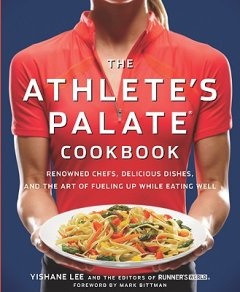 Guest blogger Yishane Lee is the author of “The Athlete’s Palate: Renowned Chefs, Delicious Dishes, and the Art of Fueling Up While Eating Well” (Rodale), a cookbook for the gourmet endurance athlete.
Guest blogger Yishane Lee is the author of “The Athlete’s Palate: Renowned Chefs, Delicious Dishes, and the Art of Fueling Up While Eating Well” (Rodale), a cookbook for the gourmet endurance athlete.
Most athletes know that carbohydrates and protein are critical to fuel a workout and aid recovery after exercise. But beyond those nutrients, there are five essential nutrients to incorporate into your diet in order to make sure your body operates at its peak.
1. Anthocyanins
This antioxidant gives red, blue, and purple fruits and vegetables their color. It reduces inflammation and counteracts muscle damage that can be caused by working out and also improves cardiovascular function. Blueberries, strawberries, cherries, blood oranges, eggplant, and red grapes are all good sources of anthocyanins. Even the cocoa in dark chocolate contains this antioxidant.
2. Choline
This nutrient, grouped with the B vitamins, is important for liver and cellular function, the metabolism of fat, and cardiovascular health. Higher choline levels in the body have been linked to better endurance and performance in marathoners. Find choline in egg yolks, soy products, sesame seeds, flaxseeds, wheat germ, peanuts, chicken liver, beef, and pork.
3. Omega-3 Fatty Acids
These heart-healthy essential fats that improve cholesterol levels, keep arteries flexible, and regulate blood pressure also fight joint pain by reducing inflammation. Boost your intake by eating wild salmon and other fatty fish, soy, and certain oils and nuts, like walnuts.
4. Potassium
This mineral is critical for balancing salt and electrolyte levels that can get out of whack with exercise. When fluid and electrolyte levels are unbalanced, you can feel weak and your muscles may cramp. Potassium occurs in all plant and animal foods, provided they are not processed. Reach for fresh fruits such as bananas and oranges, as well as milk and yogurt, leafy greens such as spinach and arugula, and baked potatoes.
5. Vitamin D
Known as the “sun vitamin,” this nutrient works in concert with calcium to create strong bones. It also lowers the risk of heart disease, cancer, and diabetes, and can help improve athletic performance, prevent injury, and lead to faster recovery. Your body gets the vitamin from sun exposure but supplements and food sources can also help. Look for D-fortified cereal and bread, canned fish (tuna, salmon and sardines), and milk, cheese, and other dairy products.
Also Read:
